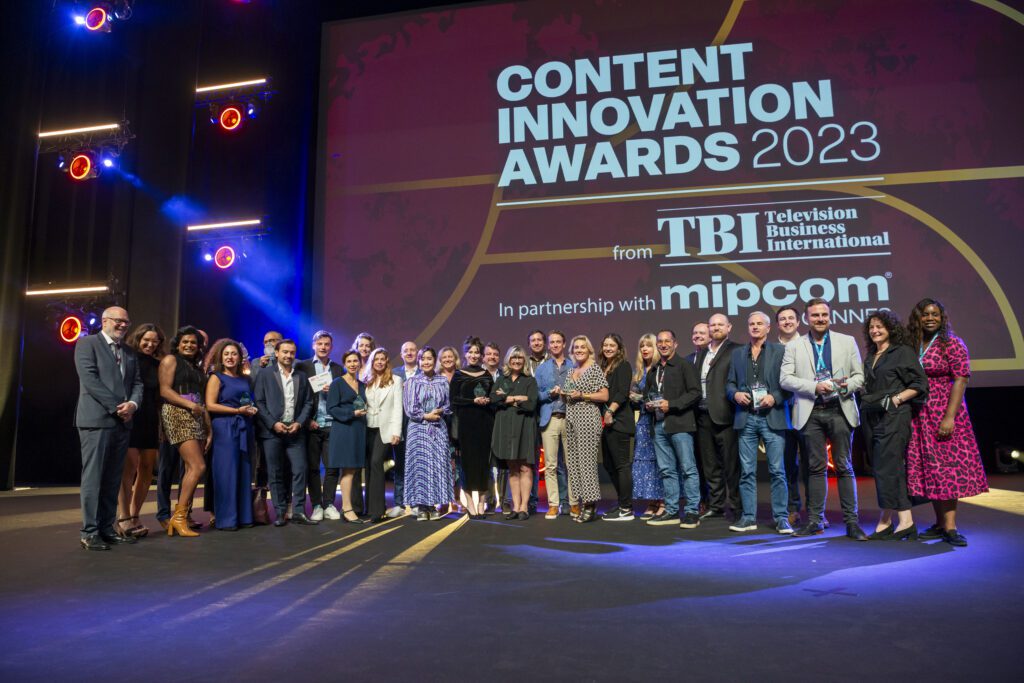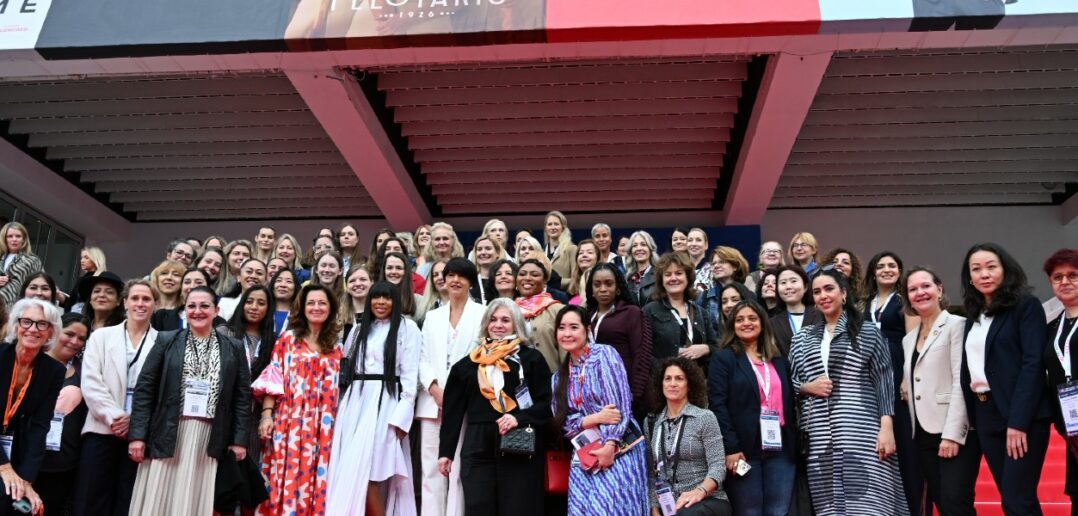FAST ‘needs to grow up as a business’
FAST channels have been one of the TV industry’s hot topics over the last year, a fact reflected in the huge turnout for MIPCOM CANNES’ second FAST & Global Summit. On Wednesday, delegates were given a broad range of thought-provoking perspectives from leaders in the field.
The Talk Series was introduced by media universe cartographer Evan Shapiro who started by giving delegates a reality check about the challenges facing FAST. While acknowledging that FAST has had “a great moment”, he said now is the time that the sector “needs to grow up as a business, from an operational and data perspective.”
Shapiro advised delegates not to view FAST’s rapid growth is isolation. “It’s dangerous for publishers to think of FAST out of context. They need to be considering the other streaming platforms coming to connected TV platforms.” The biggest threat to FAST, he suggested, is YouTube, which currently dwarfs FAST in terms of audience and revenues.
Shapiro pointed to the rapid growth of news within the FAST ecosystem. “News is more than half of viewing impressions, but just 20% of channels. That tells me we’re moving away from library content and seeing the ‘televisioning’ of FAST.”
Shapiro was followed by Srini Ka, co-founder of Summit sponsor Amagi. He painted a much more buoyant picture, stressing that FAST is “the fastest-growing segment of the TV industry”, expanding more quickly that Pay TV, SVOD and AVOD. Explaining its growth, he pointed to the entry of new FAST services and major content brands, international expansion, better user experience and an influx of premium content like live sport.
He said that there are risks – from FAST becoming “bloated’ with too many channels, and from viewer dissatisfaction with ads. But he expects the sector to expand by offering richer content, more personalisation, a better user experience and innovative ad formats.
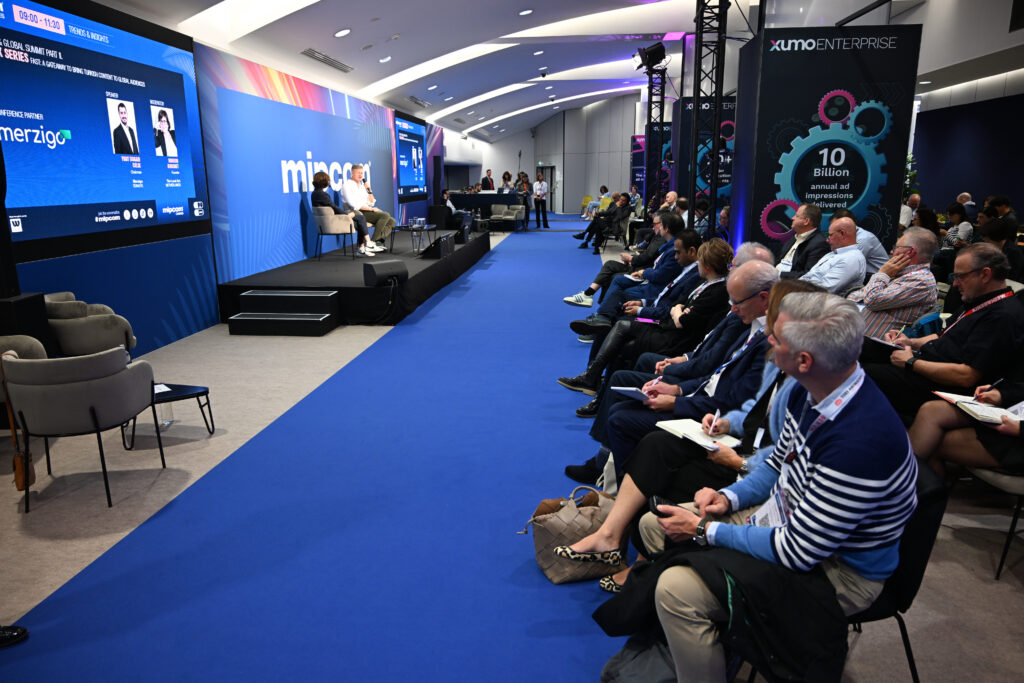
‘We’re trying to build the greatest stories in the world’
After EbonyLife CEO Mo Abudu criticised the global TV industry for its lack of meaningful investment in African creators in her Tuesday Media Mastermind Keynote, Amazon Prime Video took the Seaview Producers Hub stage on Wednesday morning to provide an insight into the work it is doing in the continent, initially in Nigeria and South Africa.
Ned Mitchell, head of originals, Africa & Middle East, Amazon MGM Studios, told delegates: “We’re trying to build the greatest selection of stories in the world, and South Africa and Nigeria have some unique stories and great talent producing and developing content.”
Mitchell said Prime Video’s regional ambition doesn’t end with Nigeria and South Africa. “Africa is huge and I wouldn’t dare paint it with single brushstroke. We want to start by getting the model right and then the sky is the limit – so stay tuned.”
Also on the panel, Wangi Mba-Uzoukwu, head of Nigerian Originals Amazon Studios, said there is a lot of opportunity in unscripted content currently. “We are collaborating with local talent to add extra value to their projects and support their growth.”
Mitchell and Mba-Uzoukwu gave a sneak preview of a new Nigerian project called Ebuka Turns Up Africa, a travel-reality hybrid starring popular media personality Ebuka Obi-Unchendu. Speaking from Lagos, Obi-Unchendu, who was also executive producer on the project, thanked Amazon for the “amazing opportunity”. He said the series would show his fans an unexpected side of him and reveal the spectacular beauty of Africa.
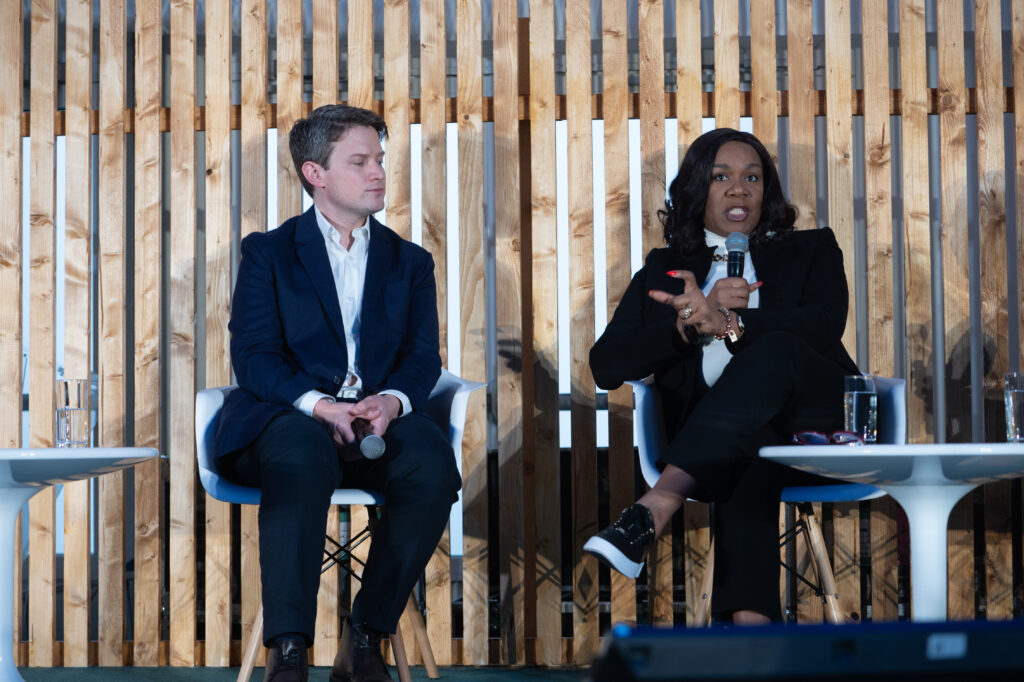
Navigating a world that is ‘still dominated by men’
There was a strong turnout for the International Mentoring & Networking Breakfast for Women In Media on Wednesday.
Created in partnership with médiaClub‘Elles, the two-hour event is a powerful platform for female executives from around the world to discuss the challenges they face in their careers. The roundtable breakfast is structured so that leading executives, aka mentors, are able to provide guidance to women at different stages of their career journey.
Florence Sandis, president of médiaClub‘Elles, said the event is valuable because women are navigating a world that is “still dominated by men. Sometimes women lack confidence or don’t dare to fulfil their ambitions. We want them to dare, so this event is about support. It’s about helping women become more strategic, which men are often very good at.”
She said that the event’s roundtable structure is valuable because it means experienced executives “can provide concrete tips – for example how to contact decision-makers, or what to do when they don’t get any answer. It’s a great way to encourage exchanges and find allies.”
Participants continue their dialogue after the event is over, Sandis added. “We encourage them to talk afterwards, and each table creates its own WhatsApp group. Sometimes they do business together and when they travel they know they have contacts around the world that they would never have met otherwise.”
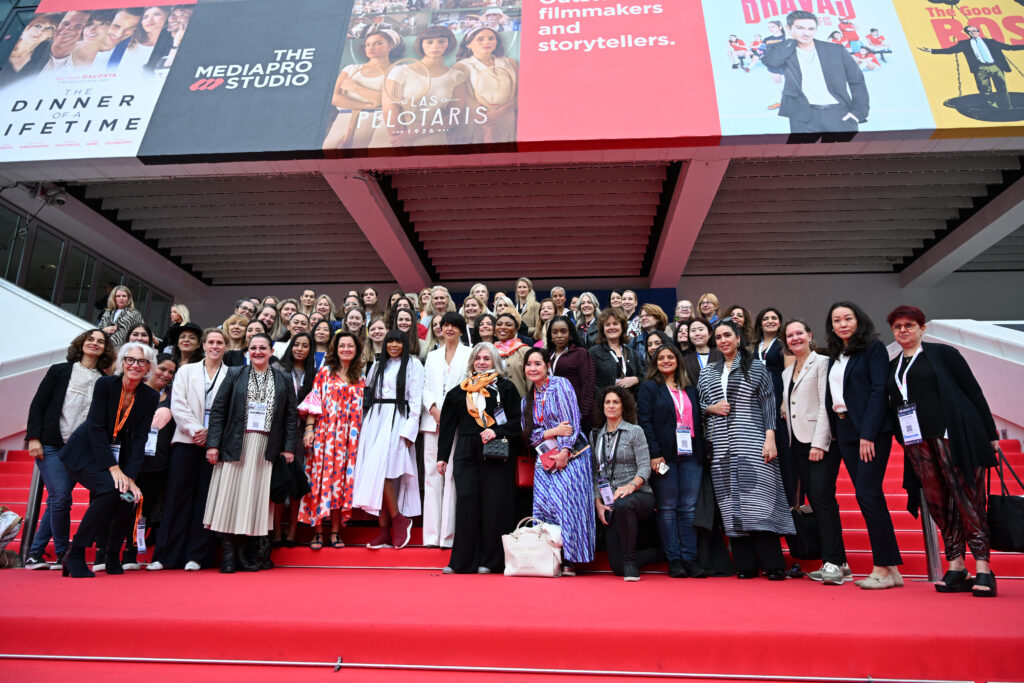
Fresh Fiction: ‘the real, and the very unreal’
THE WIT CEO Virginia Mouseler was back in the Grand Auditorium on Wednesday afternoon to deliver another of her popular MIPCOM CANNES sessions: Fresh TV Fiction.
She said that the fiction market is currently driven by two polar opposite editorial trends: “the real, based on true stories, and the very unreal.”
An example of the former, she said, is ITV’s Yorkshire Ripper drama The Long Shadow, while the latter is represented by Netflix’s One Piece, a live-action fantasy series that started life as a manga comic book and has previously been adapted as an animation series.
According to Mouseler, The WIT’s data shows that an increasing number of drama series are based on real events – with the true-crime genre being a major beneficiary. As well as The Long Shadow, she talked about BBC’s Jimmy Savile drama The Reckoning.
Common to several new true-crime series is the way in which the police fail to protect female victims, Mouseler said. Another example in this vein is French series Samber, about a rapist who managed to elude detection for 30 years, during which time he committed many crimes. Ireland’s drama The Vanishing Triangle tackles a similar set of themes.
A different kind of drama showcased by Mouseler was Estonia, about a passenger ship that sank in 1994 killing at least 852 people. The eight-part series was produced out of Finland and Sweden and is being distributed internationally by Germany-based BetaFilm.
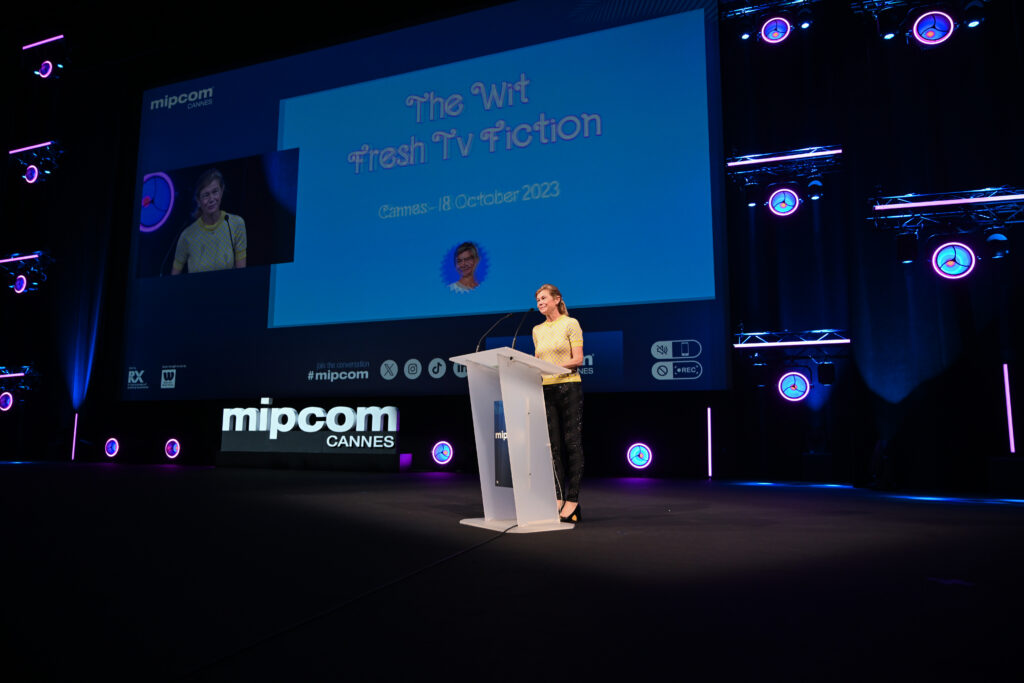
EU’s AI Act ‘is a duty we have to all creators’
The European Union may be the first territory to implement detailed regulation of AI technologies, as negotiations continue to finalise its Artificial Intelligence Act.
Appearing at the MIPCOM CANNES AI Summit on Tuesday, MEP Dragos Tudorache – who as the AI Act’s co-rapporteur is playing a key role in the process – outlined the thinking behind the new legislation.
“We are not trying to regulate the technology per se. That will be impossible. But rather to look at the use of AI, and to try to identify those uses that are risks,” he said.
The AI Act will include a section focusing on ‘generative’ AI technologies, which Tudorache said is the most relevant part for the TV industry.
It is likely to require companies to clearly label AI-generated content so that people know that what they are viewing or listening to was made by an AI.
AI companies will also be accountable for illegal or malevolent content created using their models, and will be expected to be transparent about any copyrighted material their AIs have been trained on.
“We do not say these models cannot be trained on copyrighted material. Of course they can. They need to see the world,” Tudorache said.
“We have to expose them to human creation, just as any human creator would expose himself or herself to the work that others have done. But there is an obligation for transparency.”
The AI Act is unlikely to come into force until early- to mid 2025. “This is a duty that we have to all creators out there. And not only to the creators themselves, but to us as a society,” Tudorache said.
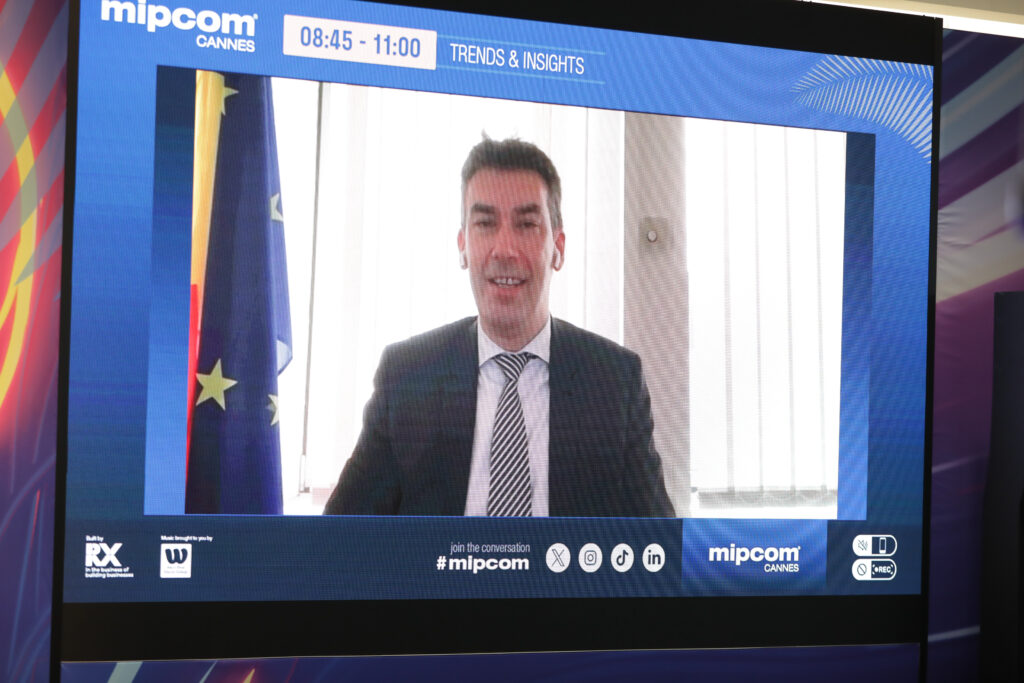
An ‘Alive and thriving’ Ukraine on show in Cannes
The Ukrainian audiovisual industry came under the spotlight at the Creative Europe MEDIA stand, an initiative supported by the European Union.
The early MIPCOM CANNES session, Made In Ukraine: Content Market Overview And Pitching, was one of the highlights of the events of the European stand activities. Ukrainian representatives provided a compelling overview of their Media Industry, highlighting recent achievements, untapped creative potential, and opportunities for collaboration.
Following a brief review of the country’s audiovisual market, including its recent achievements, creative potential and partnership opportunities, speakers from Ukrainian production and broadcasting companies presented a wide array of Ukrainian titles at MIPCOM, including both ready-to-air and in-development original dramas and documentaries across multiple genres.
The session featured Film.UA Group’s Kateryna Vyshnevska, 1+1 Media’s Khrystyna Shkabar, Starlight Media’s director of content monetisation Asia Bataieva-Dokalenko and Suspilne Ukraine’s general TV producer, Grygoriy Tychyna. It was moderated by scriptwriter Dennis Alme de Visscher.
The country was also represented through the Ukraine Content Club (UCC), an alliance of Ukranian media groups and creative powerhouses. The UCC aims to bridge the gap between the Ukrainian and international AV industries, promoting Ukraine as a leading provider of unique and high-demand content for global audiences.
Some 23 independent Ukrainian firms are represented at MIPCOM CANNES under the Creative Europe MEDIA stand.
Despite the tough times, these firms are eager to collaborate and support the growth and stability of Ukraine’s Media industry.
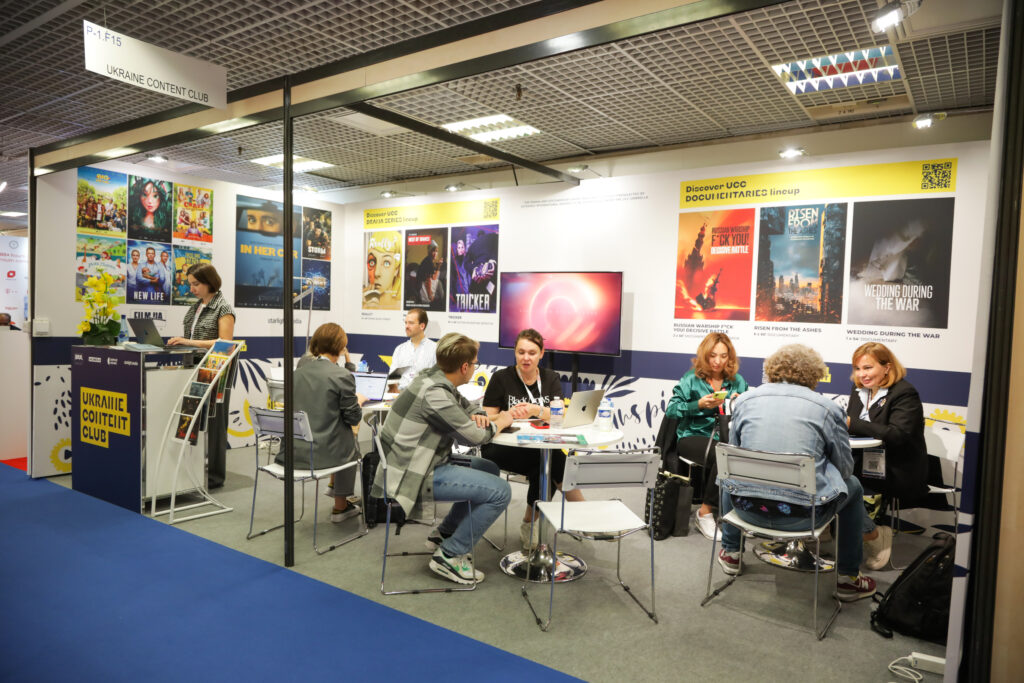
Content is honoured at a glittering ceremony
Fremantle, Abacus Media Rights, Nippon and Woodcut Media were among the stand-out winners celebrating success at the ninth Content Innovation Awards (CIAs), which took place at MIPCOM CANNES on Wednesday evening in the Grand Auditorium. It’s the first time the Awards have been held in partnership with MIPCOM CANNES.
Special Award winners honoured this year included Peaky Blinders creator and writer Steven Knight, 1895 Films CEO Tom Jennings and Quay Street Productions’ Karis Winstanley.
